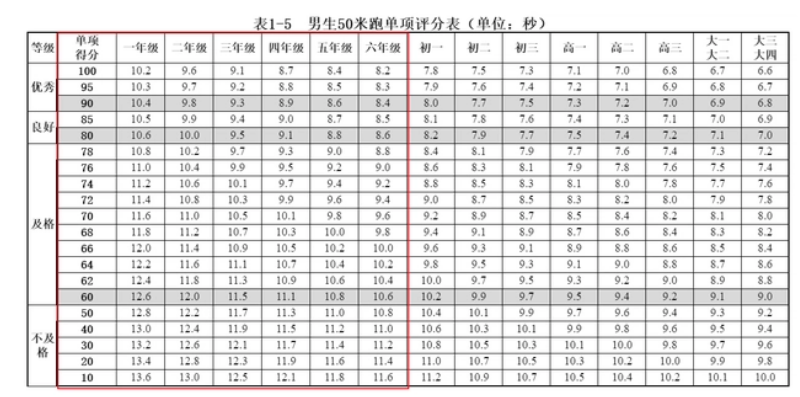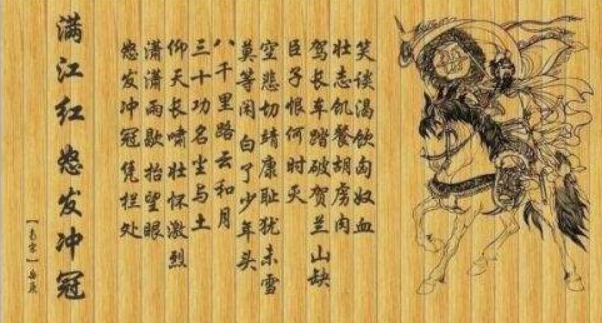
读完一本名著以后,你有什么体会呢?让我们好好写份读后感,把你的收获感想写下来吧。那么我们该怎么去写读后感呢?以下是小编为大家整理的野性的.呼唤英文读后感,欢迎大家借鉴与参考,希望对大家有所帮助。
“When the long winter nights come on and the wolves follow their meat into the lower valleys, he may be seen running at the head of the back through the pale moonlight or glimmering borealis, leaping gigantic above his followers, his great throat a bellow as he sings a song of the younger world, which is the song of the pack.”
There was a script about the savage life in the frozen north of ice and snow. There were the unexplored north areas of America and the 19th-century Klondike Gold Rush which dragged men from the entire world into the hard wild to look for gold. There was a road where a gigantic dog like human fought his way to struggle in the wasteland. There was a civilized beast grew from mildness to wildness. And there came the call of the wild.
The background and plot
In the 19th century, it was said that gold had been found in the Klondike area in Northern California of vast wilderness, so thousands of people rushed into this uncultivated ground to seek for gold and fortune, which needed a large quantity of dogs to support for the transportation. There came up Buck story which we can’t define it as luckiness or unluckiness.
Buck, a dog weighed one hundred and forty pounds, tall, strong, and heavy muscled, lived a cozy and comfortable life in a rich family of a Judge named Miller, but was soled by evil gardener to two dog dealers and was took to Alaska as a sled dog.
Led by his second masters, two governmental couriers, he studied how to pull a sled and how to live in this cruel world where needed more cunning behavior and less fake moral and courtesy. For example, he learned to sleep in the snow hole to get warmness from the clod nights, and he learned to thief bacon and food from his masters and neighboring camps, as well as that, he learned how to fight effectively and efficiently with his antagonists and survive of the combat about the dominant leader with Spitz. In addition to those, he also went through the hardships in the toil on the ice layer, and he learned how to obtain the victory and stand on the wilderness which was beneficial to himself who can only fit the environment, but can’t defy the harness.
After the arduous trace and trail, they finally reached the destination, and then, after a short break, dogs including Buck led by a Scotch half-breed man stepped again on the ice land with the Salt Water Mail. It was a hard trip and a monotonous life operating like machine that dogs must undertake the heave pulling and poor condition where they were tired and short of weight. Buck’ partner, Dave who had something wrong inside suffered most of all, but pride as he was, pulling the sled was his holy missionary job which can fulfill his life and must be done until his death. However, the tough work was still continuous.
Thirty days passes, by which time Buck and his mates found how really tired and weak they are until they arrived at the last town. They were in a wretched state, worn out and worn out, which was not the tiredness that came from a brief and excessive effort and can be recovered from some hours’ rest, but was the dead tiredness that came through the slow and prolonged strength drainage of months of toil and had to need a long vocation to evacuate. Nevertheless, only three days after they were bought by a family including a foolish woman, a callow and ignorant youngster, and a middle aged man with weak and watery eyes. Never mind of dog’s frazzle, the third masters tried their best to lash out at them with whip, but Buck was not under very good command and not proud and interested of this career. Until they reached at the camp of Thornton, with the natural instinct and extreme weariness, Buck tolerated the whip from his so called masters and refused to go ahead which was his luckiness to meet his last master, Thornton.
Without doubt, Thornton was a good master, full of wisdom, intelligence and love who can manage Buck’s life comfortably and in order. By the careful attendance form his new master, Buck was on his feet quickly and solidly. Filled with the loying love toward his master, Buck companied him, saved his life for several times and helped him win the gambling party. Then, they faced into the East on an unknown trail to achieve where men and dogs as good as themselves has failed, as the call from the wild became stronger and stronger which attracted Buck to leave the civilization to look for. The knife that cut out the bound of Buck between his masters was the master’s deaths which left a void in the dog’s heart and a strengthened calling from the wild. Buck, a civilized dog, finally went back to wolves after thousands of generation by singing a song of the younger world, which is the song of the pack.
Survive of the fittest
The Call of the Wild abounded in Darwinism which advocated the evolutionism and natural selection theory.
In the process of having to leave the comfortable Miller’s house and adapt to the harsh primitive snowfield, Buck went through the changes from the mildness to wildness where he studied the law of club and fang and admitted the rule of failure without progress. “He had learned well the law of club and fang, and he never forewent an advantage or drew back from a foe he had started on the way to death.” “He must master or be mastered,” “Kill or be killed, eat or be eaten, was the law; and this mandate, down out of the depths of time, he obeyed.”
After analysis, we can find that related to the Darwinism, learning ability was an important factor of the victory of living of Buck. As a south dog living in the rich family and innocent environment, Buck was not wary of Manuel’s uncommon behavior, but situation has changed entirely after a period of barbaric life: he showed hostility to his all possible mates and took precaution of everything. As well as that, throwing away the moral standard and facing the death of starvation, Buck had an ability of thief. “This first theft marked Buck as fit to survive in the hostile Northland environment. It marked his adaptability, his capacity to adjust himself to changing conditions, the lack of which would have meat swift and terrible death.” In addition to those, his muscles became hard as iron, and he grew dumb to all ordinary pain, and he can successful take full use of all the elements no matter internal or external. That’s the progression of Buck which can equip him with thick helmets from being hurt deeply and made him be the fittest.
Not only did he learnt by experience, but instincts long dead became alive again. Maybe knowledge acquired by learning was Buck’s left hand, instincts his right. Good pedigree set up his first sense of a tall, strong and muscular potential king, while the instinct helped him to learn fast and save his life. “It was no task for him to learn to fight with cut and slash and the quick wolf snap.” “They came to him without effort or discovery, as though they had been his always.”
Buck changed as his living environment changed. With the change of environment, Buck, compared to the previous southern family dog that was mild and gentle, acquired many abilities and skills. He tried his best to live by becoming cunning, cold-blood, and cruel which make him step forward on the road of corpse and blood. Survive of the fittest which is demonstrated by adaptation to the environment and wielding the law to protect himself and attack on others made him roared on the top of the food chain and return to wolves.
All what Buck has done was not due to his reason and thought, but due to his fit. He was fit to everything surrounding him unconsciously and put him to the new way of living quickly.
“The theory, ‘Survival of the fittest’, is the law of biological evolution which implies that plants or animals adapt to the environment to survive or to die—it is the biological survival rule of brutal biosphere.” That is to say, the key of this law is that those who can fit the environment can survive, on the contrary, those failed to fit would be obsolete under the rule of elimination.
Peeping at Buck and his struggle, we can have a vision of us human that was also fighting in the battlefield with our mates and against our enemy. Filled with bustling stuff, we tried our best to stand on the top of right and authority only because that position would give us more materials and the sense of pride which we depended on to live. Flowers in the greenhouse didn’t know about the hardship of living, so they showed goodwill and send aroma to others; while life in the ice field where wind was blowing like knife and thick snow can bury people only showed a will of survive and cut up the useless goodness to wear on the coldness.
We must do it because we had to do it. The pack of animal was like a society of people. Death and genocide would happen on us if we were not willing to fit the environment thoroughly. To dance with the shackle of survive of the fittest was the policy we should carry out forever, the reason why our human stood on the top of biologic chain, and the rule of living of every individual.
My opinion on virtue and vice
Some people had said virtue was the biggest treasure that human should obey. There is no doubt that kindness, loyalty, honor, love, companionship, sympathy, mercy, and other virtue should be followed. However, I argue that there is transformation between different virtue and even the virtue and vice.
Showing the feature of three animals: dog, wolf and human, Buck was the bridge that connected the past and present. As the production of human civilization, dog was evolved from wolf and they would still howl on the wilderness if human didn’t raise and train them.
Buck was a mirror from which we can see ourselves. Through this dog, writer told us that only in a place where sun darted its forth beams and everything was in order human will wear the coat of basic goodness, otherwise, kindness would be eliminated if it met with the club and fang. In the cruel process of primitive accumulation of capitalism, mercy and sympathy was not needed for those quality can lead to death of innocent people. In the period of survive of the fittest, life was not concerned with civilization, while wilderness was the real marrow of life and echoing for the wilderness was the beginning of revival. Buck realized that “Mercy did not exist in the primordial life. It was misunderstood for fear, and such misunderstanding made for death.” This phenomenon can be seen in dogs as well as human. Wilderness were calling for human and eliminating the kindness in human’s heart stealthily.
In A Treatise of Human Nature, British philosopher David Hume has said moral came from human’s emotion and conscience but not rationality. The essence of moral existed in the perceptual knowledge, but not rational knowledge. Therefore, the reason why moral distinctions had the division of virtue and vice was that the judgment of moral came from human’s attitude toward their internal actions and external objects. The judgment of moral came from our interest appeal; that is to say, the judgment of moral came from what was good to us, but not what is good.
Let us think the question that which direction of Buck’s change to a beast was, progression or retrogression? The answer was that we can’t answer because he survived due to that he threw away those so called virtue and carry out those so called villainy. All what Buck did was under the pressure of living, and he responded to the call of the wild only because he wanted to live. Maybe in the comfortable and civilized Judge’s house, he would stick to the standard of moral and protect the respect of Judge’s riding whip by dying under his whip. But in this cold field, sticking to those so called moral was a fool. Possibly in this kind of world, brutality, cold-bloodedness, cunning and so on was the moral.
The division of virtue and vice was the refection of the division of civilization and wilderness to some degree. Maybe we can’t define what moral was and what vice was now in some scene, but we can try to last for enough time to seek for the answer.
Run after the free life
The call from the wild stood for human’s nature to run after a simple, independent and free life.
Buck was bored of the complex life where he must deal with such a big net of relationship. He just wanted to run and leap through the forest, howled under the grey moonlight, ate what he liked and killed what he liked without many rules to obey. No one desired to live a complicated life for it’s difficult and tiring to reckon other people, while life in the wilderness was just that eat or eaten, kill or killed and there was no middle ground. Easy and simple life was set up on the uncivilized world where creatures didn’t have so much relation and elements to consider. Only being independent from all that can we find what we wanted.
When unpracticed Charles and his relatives sunk in a ice hole, writer said that “A yawning hole was all that was to be seen.” That hole was a capitalistic vast mouth that can eat people, but which would be rotten if we escaped from it. “Here a yellow stream flows from rotted moose—hide sacks and sinks into the ground, with long grasses growing through it and vegetable mould overrunning it and hiding its yellow from the sun.” The gold that Thornton got has become a yellow stream because they were eroded by natural power and lost their value. Imagine in a world where was entirely natural and uncivilized, gold, a kind of iron and currency, was entirely futile, isn’t it?
Being free of human world and even free of materials, Buck got a totally new life where he can run at the head of the pack through the pale moonlight to release his vitality and got comfort from nature. We needed materials actually, but material was void actually. How can we get free? To get free of our hearts.
Conclusion
There are two sentences I’d like to mention. First, human beings, never degenerate into beasts. Second, beasts, never degenerate into human beings. Correctness of those two sentences should be discussed.
Human’s progression began in the point when human beings evolved from wilderness period to civilization, but the retrogression also began at the point when people shared the feast of civilization. For us who are far away from the wilderness and raised and trained by civilization, this book gives us a new vision.
Sometimes a picture floating in my mind: in the icy forest, a silhouette of Buck as a wolf caned his neck to howl toward the pale moonlight to echo the howling of pack. That’s the song of animal, and the chant of human, and the snarl of life.
标签:读后感





















